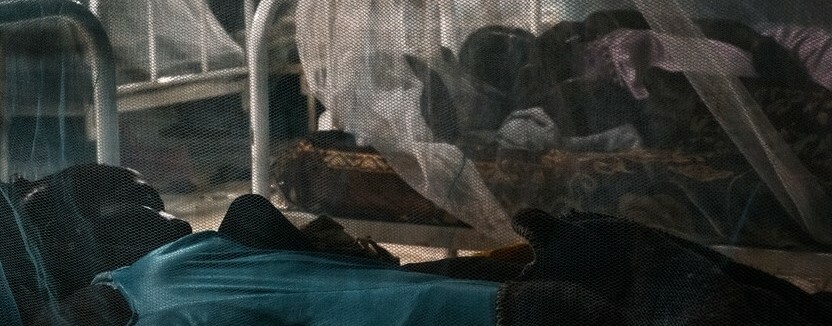In South Sudan, over seven million people are expected to face acute food insecurity by July, severely impacting TB and HIV patients. Unable to endure their rigorous treatments on an empty stomach, many suffer severe pain or reduce their medication, putting their lives at significant risk. This stark reality forces patients in Leer, Unity State, to choose between taking life-saving medication and living pain-free. And watch their health decline.
Standing feverishly in front of his house under the 40-degree sun, James, a 60-year-old patient, leans on a cane to support his emaciated body. “Life is very hard here because we have nothing. I fell sick with TB/HIV three months ago, so I can’t work and have no savings. All we find around us are water lily roots, but that’s not enough.”
Showing his stomach with a grimace, he continues, “That’s why I usually reduce my treatment to match the food I have. If I know I’ll only have one meal a day, I take half my medication. I know it’s not good for my health, but I have no other choice. If I take the treatment without eating, I get dizzy, shiver, and suffer severe stomach pains.”
A vicious circle that’s hard to break
Inside MSF facilities, Gatkuoth, a patient admitted two days ago, shares the same challenges. “I had TB four years ago and completed the treatment quite easily then. Now, with the deteriorating situation and no food, it’s much harder. Sometimes the pain makes me wonder why I endure it; maybe I’d rather die from the disease.”
Leer County in South Sudan faces heavy flooding, recurrent insecurity, and isolation, making life difficult. Fear of losing crops has deterred farming for years. People rely on market food, which is increasingly unaffordable due to inflation, or on reduced food assistance. Since April 2023, over 60,000 returnees and refugees have settled in Unity State, straining food supplies and healthcare.
Undernutrition is rampant, severely impacting TB/HIV therapy adherence and weakening immune defences. Food and nutrition support for TB and HIV patients, along with transport and other mechanisms, are crucial for improving health outcomes and treatment adherence.
Vulnerable groups must not be forgotten
“Food insecurity is a major problem,” explains Daniel Mekonen, MSF’s medical team leader in Leer. “We have over 600 TB/HIV patients who struggle to follow their treatment due to lack of food. Many reduce or stop their medication, leading to severe consequences. We’re seeing more patients in advanced stages, resistant to antimicrobials, and the number of new patients has doubled to 16 per month. Without food support, our program cannot succeed. MSF is deeply concerned about the prevalence of HIV/TB in South Sudan.”
MSF, which started working in Leer, Unity, in 1989, remains one of the few organizations providing medical care in the area. While malnutrition is rising, food distribution among the population is insufficient and lacks priority criteria. Other organizations and agencies providing food support should scale up efforts and specifically target and prioritize vulnerable groups such as HIV/TB patients.




